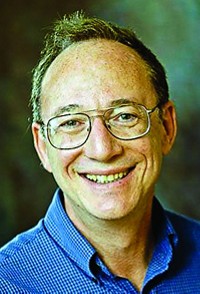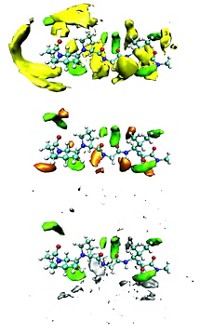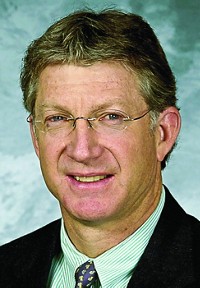Advertisement
Grab your lab coat. Let's get started
Welcome!
Welcome!
Create an account below to get 6 C&EN articles per month, receive newsletters and more - all free.
It seems this is your first time logging in online. Please enter the following information to continue.
As an ACS member you automatically get access to this site. All we need is few more details to create your reading experience.
Not you? Sign in with a different account.
Not you? Sign in with a different account.
ERROR 1
ERROR 1
ERROR 2
ERROR 2
ERROR 2
ERROR 2
ERROR 2
Password and Confirm password must match.
If you have an ACS member number, please enter it here so we can link this account to your membership. (optional)
ERROR 2
ACS values your privacy. By submitting your information, you are gaining access to C&EN and subscribing to our weekly newsletter. We use the information you provide to make your reading experience better, and we will never sell your data to third party members.
Materials
ACS Award In Theoretical Chemistry
by Jyllian Kemsley
January 7, 2013
| A version of this story appeared in
Volume 91, Issue 1
Sponsored by Dell Inc.
Before the 1970s, the science of water and aqueous solutions “was confused, controversial, even metaphysical. There were many differing ideas and insufficient rigor to build a firm understanding. Frank H. Stillinger was the singular figure to change that state of affairs,” says David Chandler, a chemistry professor at the University of California, Berkeley.
Stillinger, 78, is receiving this award for developing the inherent structure theory of liquids and glasses and profound theoretical insights on water, fluid interfaces, and particle packing, as well as pioneering computer simulations of water.
Stillinger started his chemistry career at the University of Rochester, where his choice of major disappointed his mother, he says—she wanted him to be a musician. But his interest in science stuck, and he went on to get a Ph.D. in theoretical chemistry from Yale University in 1958.
Although Stillinger and his mentors assumed that he would pursue an academic career, by the time he finished at Yale, AT&T Bell Laboratories had established itself as a hot spot for physical science research. Stillinger took a position there in 1959. He intended to stay a few years before moving back to academia but wound up staying for four decades. “Bell Labs turned out to be a very rich environment,” Stillinger says, and over time he realized he didn’t want to teach. “Bell Labs back in the day was an optimal place to be,” he explains. “They allowed me to do what I wanted and didn’t require much of anything but scientific output.”
And Stillinger’s scientific output, his colleagues note, launched a new wave of understanding about liquids.
One of his many contributions involves the way that molecules arrange themselves in the interface between liquid and equilibrium vapor, otherwise known as the capillary-wave structure of interfaces. “The previous theory of these interfaces somehow managed to disregard gravitational effects,” Stillinger says, but he determined that the magnitude of the molecular-level waves on the surface of the liquid depends on the strength of the gravitational field. Additionally, he found that the interface between two mutually insoluble liquids also depends on gravity.
Much of Stillinger’s other research focused specifically on water. Previous liquid research had largely focused on liquefied noble gases, but “that’s not what we tend to drink,” Stillinger says. Water attracted him because it “is the most important liquid on Earth,” he says. He worked out ways to establish the inherent structures of water—the mechanically stable structures that occur at potential energy minima—as well as how to describe aqueous solutions and hydrophobicity at a molecular level. Calling himself programming-illiterate, Stillinger credits Argonne National Laboratory’s Aneesur Rahman and Bell Labs’ Thomas A. Weber for turning his ideas into computational simulations.
Lucent Technologies acquired Bell Labs in 1996, and a few years later Stillinger was transferred to spin-off company Agere Systems. In 2001 he moved to Princeton University as a research scientist, collaborating with Pablo G. Debenedetti and Salvatore Torquato. Stillinger is now working on the origin of chiral selection in biology, or why life on Earth depends on
Stillinger will present the award address before the ACS Division of Physical Chemistry.






Join the conversation
Contact the reporter
Submit a Letter to the Editor for publication
Engage with us on Twitter